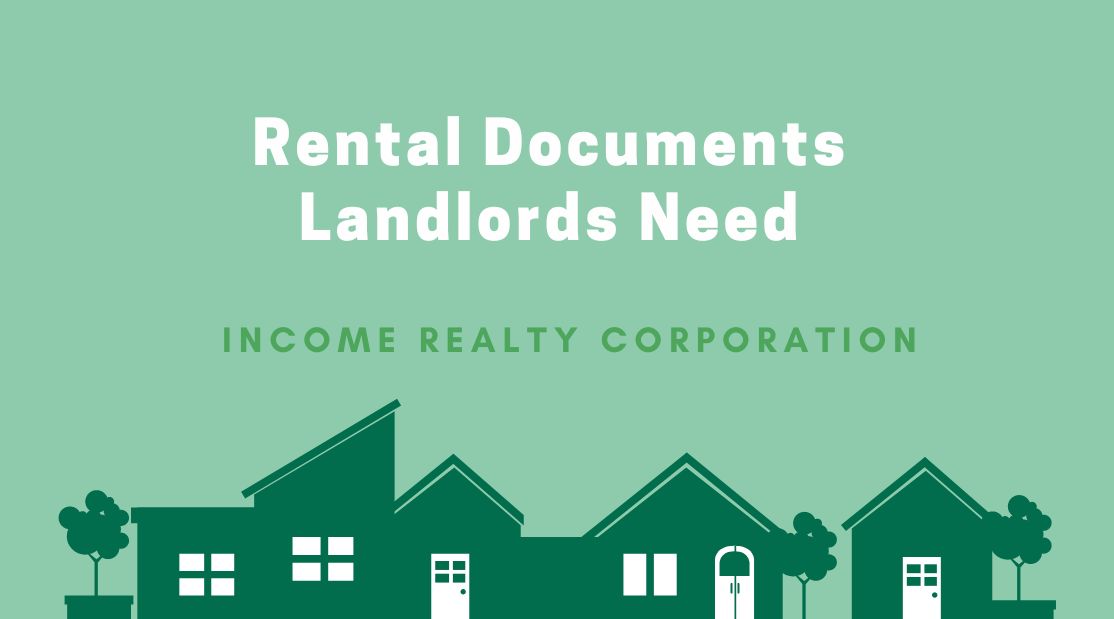One of the most challenging tasks of being a landlord is having to sort through a lot of paperwork. Because of the number of important documents that you need to keep track of, many landlords can find this task to be quite overwhelming.
However, having these papers organized and easily accessible is essential for your success as a rental property owner. Partnering with a property manager can also make keeping up with paperwork easier.
It’s also crucial to have a backup for your documents in case they get misplaced or lost. The good news is that it’s easier to back up documents these days because of cloud technology. Landlords should have multiple backups handy just in case other backups can’t be accessed right away.
Why It’s Important to Keep Rental Documents
There are several reasons why landlords should keep their rental documents on file, organized, and easily accessible, such as the following:
Accountability
All parties involved in the rental agreement should be accountable for their responsibilities as stipulated in the lease. It’s critical to have a copy of the rental agreement because this will serve as a reference for what was mutually agreed upon. This document will come in handy if you have issues with a tenant and you need to reference a certain provision in the lease.
Legal Cases
As a landlord, you need to build a healthy relationship with your tenants as much as possible. However, problems are sometimes inevitable and you may need to escalate certain issues. If you need to deal with a rental dispute, having all documents ready is essential as they will serve as evidence that can help you win your case or prevent getting penalized.
For example, keeping records of your tenant screening procedure will help you defend against accusations of Fair Housing Act discrimination.
Accounting
Since owning a rental property is a business, you need to account for all your transactions properly. This can also help you make the right business decisions. Keeping all your expense reports and income statements handy will help you make necessary financial decisions for your business.
Similarly, you also need to keep receipts of security deposits and copies of rent receipts from tenants so you can easily track the money that you collected from them.
Consistent System
Setting up a consistent system to organize your paperwork is another reason to keep track of your documents. This allows you to identify which documents need to be signed, filed, reviewed and backed up. A consistent filing system can help you focus on the performance of your investment.
Important Documents Landlords Should Keep
In general, all documents related to a current and active lease should be kept and backed up. However, it’s also recommended to keep copies of these documents even after the lease has ended, just to ensure that you’ll have them handy in case some issues arise. Here are the important rental documents that property owners should keep and back up:
1. Leases/Rental Agreements
One of the most essential documents that landlords should keep is the rental agreement. Make sure to keep the hard copy during the term of the lease, and at least two years after the tenancy has ended. Make sure to keep a digital copy of the agreement and store it in a safe and secure cloud where you can easily access it in case the hard copy gets misplaced or lost.
2. Lease Amendments
Lease amendments are the changes that were agreed upon by both tenants and landlords after the original lease agreement has been signed. These documents should be kept alongside the original rental agreement. Because lease amendments are as important as the lease agreement, it’s also crucial to keep a scanned copy on your computer and cloud.
3. Inspection Reports
Landlords are required to provide a habitable, safe property to their tenants, which is why they should perform regular inspections and maintenance of the property. The inspection reports should be kept safe and they should also be backed up.
These reports should document the state of the property at the beginning, during, and at the end of the tenancy. They should come in handy when the landlord needs to determine which damages are part of normal wear and tear and which should be charged to the tenants.
4. Notices
During the length of the lease, landlords may send and receive several notices to and from the tenants. It’s crucial to keep signed copies of these notices on file. Scanned copies should also be stored safely in the cloud.
You should retain all notices, including late payment notices, notices to visit or inspect the property, non-renewal notices, and others. You may need these documents in case there will be a dispute between you and your tenant, or if you will need to evict them for violating any provisions in the lease.
Documents You Need from Tenants
When a tenant is applying to rent your property, you will need the application form, authorization to perform background and credit checks, and financial documents like pay stubs, income tax returns, or bank financial statements. You should also keep the reference letters if you require them to provide one.
Some landlords also require proof of renters’ insurance once the application is approved. This insurance will help protect the tenants and their personal properties in case of disasters. Make sure to keep proof of renters’ insurance on file if the tenants have one.
Documents You Should Give to Tenants
Legally, only two documents should be provided to tenants: the security deposit receipts and lead disclosure notices. But it’s also important to provide tenants with a copy of the lease agreement so they can be reminded of their rights and responsibilities. Be sure to follow what is required by landlord-tenant law.
What to Do if You Lose Your Documents
If you or the tenant misplaced or lost a document, make sure to reach out to each other to ask for a copy. As mentioned, it’s necessary to have a digital scan of all the documents and save them on a secure cloud to ensure that you have a backup in case one gets lost.
Bottom Line
If you don’t want to worry about keeping track of all of the necessary paperwork, contact Income Realty today! We have tried and tested systems for everything from paperwork to tenant screening and rent collection.






